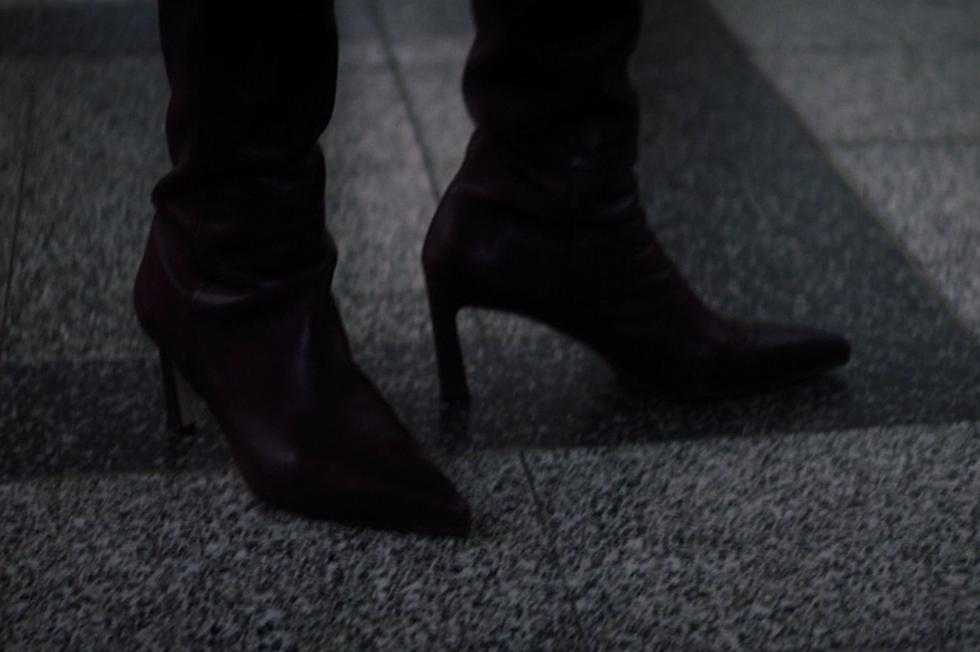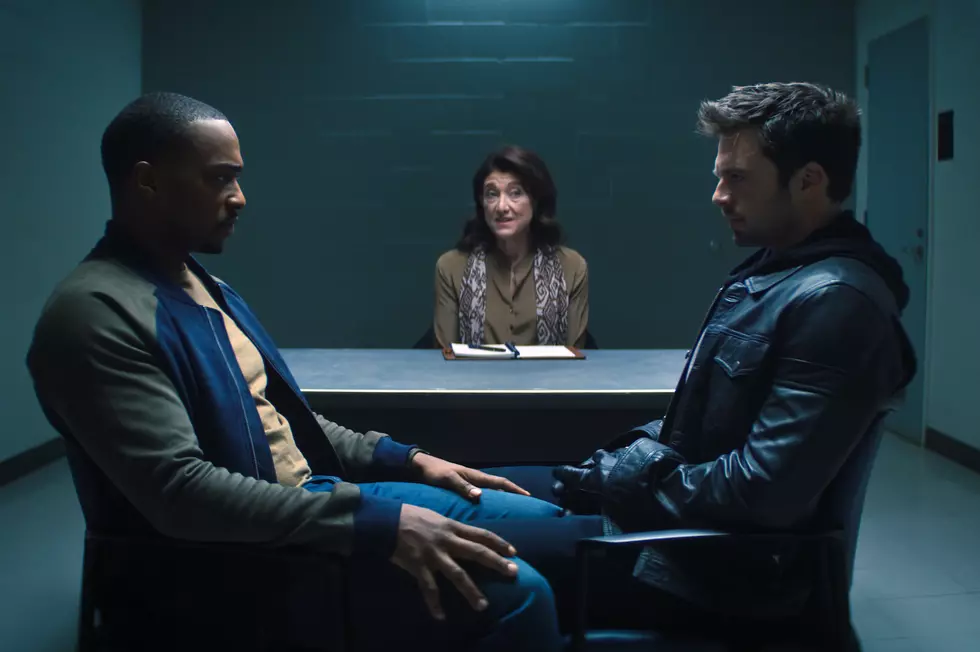
‘If You Don’t Like It, Make Your Own’ Is a Terrible Argument, But A Great Idea
As someone who makes a living writing and editing for the internet, I've gathered quite a collection of terrible arguments from online commentators, ranging from the perennially awful, 'I don't care about this so you shouldn't either,' to the specifically ignorant, 'How would you feel if they made Black Panther white?' But there's one common argument that combines dull wit with frothy anger to such exhausting effect that it deserves special attention; 'If you don't like it, make your own.'
I write about comics, so I'm especially aware of how often the argument is made in response to comics criticism. But I know that it's also used in all other creative fields, from film-making to video game design, and it's an argument without merit in any field. There is the kernel of a good idea behind it; the comic form is open to anyone who wants to make a contribution. But that doesn't mean you have to make comics rather than criticize. If you don't like what you see, there are several good reasons to say so.
1. Critics Have Value
The 'make your own' imperative may have be rooted in the familiar idea that makers have more value than talkers. In business management, the world gets divided between people who complain and people who problem-solve. The same idea lies behind the implication that those who do are better than those who teach. All versions of this argument are addle-brained nonsense.
There are two types of people in this world; people who appreciate nuance, and people who cling to intellectually dishonest notions of dividing the world into binaries. We are all both types of person at different times and in different settings. There are never only two types of people.
The truth is that you can always tend your own garden, but you can only ever point out the poison ivy in someone else's. When someone without power points out a problem to someone with power, that's criticism. The people with the power like to call it troublemaking, because it's inconvenient to be held accountable; but that's the role of criticism. You've heard the one about how great power comes with great responsibility? If Uncle Ben had lived a little longer, the next part might have been, "With structured hierarchy comes top-down accountability." Admittedly, it's not quite as memorable.
Perhaps solving problems directly does have more value than pointing out that a problem exists, but we should all be both critics and creators as the circumstance requires. If you see a problem that you can't fix, you don't have to bite your tongue.
2. Criticism Is Growth
Art is individual, personal, and intimate. But art creates establishments --- in commercial art, 'businesses' --- and establishments are impersonal edifices that want to maintain a status quo that matches their definition of success. Even in art, establishments tend to favor the development and advancement of those who resemble people already on the inside. Anyone who doesn't fit the successful model needs to be critical of that model if they want an equal shot at success.
I'm talking in abstracts here, so let's take an obvious example that humanizes the idea. The world of business favors men. Men tend to hire and promote other men because they understand how men fit inside a successful business. Women can either accept a system that disadvantages them, or they can challenge it.
Criticism is one of the tools used by the disenfranchised to challenge exclusionary systems, and blanket dismissals of critics serve to maintain exclusion to the benefit of the status quo. In the short term, that provides stability; in the long term, stability becomes stagnation. Exclusion means a loss of growth, innovation, and adaptability by placing a premium on familiar mediocrity. Criticism stimulates change and inclusion.
This is not to suggest that all critics are disenfranchised, but all attempts to silence critics will disproportionately impact the disenfranchised.
3. Who Says We Don't Like It?
"If you don't like it..." Woah, wait, hold on a second. You think, because I'm criticizing something, I don't like it? Step back, chum. Liking something, loving something, and even loving something unconditionally, should never place that thing beyond criticism.
Yes, it's true; even the term 'unconditional love' does not mean an exemption from criticism. It means that you love that person (or dog, or popular media franchise) no matter what. It does not mean that you will tolerate everything that person, dog, or franchise ever does. It does not mean that you will never ask them to change. I can love you without condition and still ask you to put your dirty laundry in the basket. That's not a condition for my love, because I will love you even if you don't do it. But loving you unconditionally also doesn't mean I have to stop asking.
So you can love your country and still demand that it stops killing civilians. You can love your child and still punish it for stealing. You can love your dog and still train it not to eat your shoes. And yes, you can love the comic industry and still want it to change in important and fundamental ways.
Turning a blind eye to bad behavior only exacerbates that behavior. If you permit bad behavior from your country, your dog, or your comic industry, the thing you love will eventually be punished and/or ostracized by someone whose love is not guaranteed. To stop that from happening, take care of the thing you love, and steer it away from bad behavior. Be a critic.
That doesn't mean that critics are all great lovers. Love is a conscientious navigation between encouragement and concern, and away from the treacherous shores of negligence and harassment. Love includes criticism. Criticism isn't hate.
4. Making Your Own Doesn't Fix the Problem
All you need to make a comic is an idea, a sheet of paper, and a pen. Children can do it. Children do do it. Making your own is easy.
And... what then? How do you get people to read your comic? How do you sustain it? If you're making a comic rather than criticizing a publisher, how do you match their production values? Their distribution? Their promotion? If your criticism is of a genre, a medium, an infrastructure, how do you 'make your own' version of all that?
Alternatives are not solutions. If a bakery sells contaminated bread, and you try to warn people about it, are you going to listen to someone who tells you to shut up and bake your own bread? You actually can bake your own bread --- trust me, you can --- but does that solve anything?
'Make your own' is not an answer; it's a distraction from the problem. Making your own is about as much help as buying a hat or singing a song. It's a non sequitur. It means, "If you don't like it, go away and do something else so I don't have to listen to you any more."
Don't be that guy. That guy's a jerk.
5. But You Should Make Your Own
If you can make your own comic, movie, video game, inspired by your frustration at the failure of those who went before you, that is great. These industries always need new voices. Sure, the thing that you make won't fix the problems you've identified, but it might one day be part of a changed industry. If you can make your own, and you want to make your own, go out and make your own.
But not instead of criticizing. The person who says, "If you don't like it, make your own', will never support you. They don't see a problem with what they've got, so they don't see a need for your alternative. Don't make anything because of them. Make something because of you.
6. You Will Always Be A Critic
Star Wars was inspired by Flash Gordon. A Song of Ice and Fire owes a debt to The Lord of the Rings. Harry Potter offers an answer to The Chronicles of Narnia. Breaking Bad takes its lead from The Godfather. Jason Bourne took shape against James Bond.
Art exists in conversation with that which came before it, and that's as true in comics as in any other narrative form. Watchmen, Ms Marvel, Copra, Astro City, and All-Star Superman are not just united in being superhero comics, but in being critical responses to superhero comics --- and each of them markedly different. The Wicked + The Divine feeds on the horrors of celebrity, just as surely as Preacher feeds on the hypocrisies of religion. Saga uses the scope of its canvas to ask questions about family; Sex Criminals employs humor to explore our attitudes to intimacy; and 100 Bullets honors its noir roots by interrogating modern morality.
From Frank Miller to George Miller, via Melissa McCarthy, Hayao Miyazaki, Sarah Burton, Shonda Rhimes, Taylor Swift, and Zadie Smith, everyone who tells stories or creates art is a critical thinker, responding to ideas with ideas of their own. There aren't just two types of people. Makers are critics.
If you're going to make your own, you need to be able to tell us what like, and what you don't like. If you can't be a critic, you don't have anything to add.
More From ComicsAlliance









